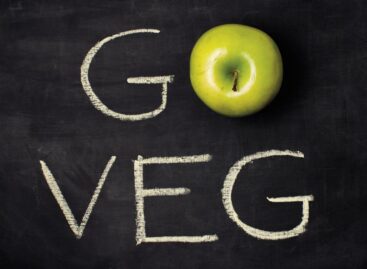Economising, consciousness and seeking trust: h ow our consumption habits are changing
On the first day of the Business Days conference, managing director Tünde Turcsán presented the results of this year’s YouGov Shopper survey.
This article is available for reading in Trade magazin 2025/11.

Tünde Turcsán
managing director
YouGov Shopper
The 2025 data is based on the long-term, actual purchasing data of 4,000 Hungarian households, supplemented by questions about motivation and attitudes. What makes this research unique is that it links “what is in the basket?” data with an examination of shopper thought processes, values and decisions about “why we put that in the basket”.
Economic background
By the summer of 2025 Hungary wasn’t at the top of the EU inflation ranking anymore, but the ~4.2% rate remains one of the highest in the EU (compared to the EU average of ~2.4%). Purchasing power is slowly improving, but it is still at around 62% of the European average. The proportion of Hungarian households that are “just getting by” on their monthly income is high (47% vs. the EU average of 35%). It is therefore not surprising that 8 out of 10 respondents plan to spend less on eating out and entertainment. The financial pressure is also evident in shopping baskets. Two main defense mechanisms can be observed: quantity restraint and downtrading.
Different motivations, different rhythms
According to the YouGov Shopper Nutrition Habits Study (n=3,460), the Hungarian population can be divided into five major nutritional segments: 1. For the uninterested (28%), food is functional, with health being a secondary consideration. 2. The convenience-oriented (21%) are looking for quick, practical solutions. 3. The experimenters (17%) are open to health consciousness and try out different options, but are less consistent in this area. 4. Those with health problems (15%) obviously focus on their choices for health reasons. 5. For the health-conscious (19%) what they put into their bodies is of paramount importance, and they are very critical when it comes to food choices.
The new balance
Hungarians traditionally cook a lot: 32% cook fresh meals every day and 49% cook several times a week. The reflex to save is strong, as ~70% don’t throw food away but save leftovers. Meanwhile, there has been a noticeable decline in the hospitality sector. 78% of the population is concerned about the rising cost of activities outside the home. The market for home-delivered ready meals presents a mixed picture. A significant proportion of Hungarians never order, while others order lunch menus/fast food regularly or occasionally. The figures show that Hungarian consumers are looking for security and predictability, and they are very distrustful of the current situation.
Related news
An experience beyond scent
🎧 Hallgasd a cikket: Lejátszás Szünet Folytatás Leállítás Nyelv: Auto…
Read more >Less meat might be consumed in German-speaking countries
🎧 Hallgasd a cikket: Lejátszás Szünet Folytatás Leállítás Nyelv: Auto…
Read more >Related news
40 secure jobs, sustainable solutions – new BURGER KING® in Csepel
🎧 Hallgasd a cikket: Lejátszás Szünet Folytatás Leállítás Nyelv: Auto…
Read more >(HU) METRO Gasztro Fesztivál a SIRHA Budapesten – Élmény, inspiráció és valódi megoldások a HoReCa-szakmának
🎧 Hallgasd a cikket: Lejátszás Szünet Folytatás Leállítás Nyelv: Auto…
Read more >









